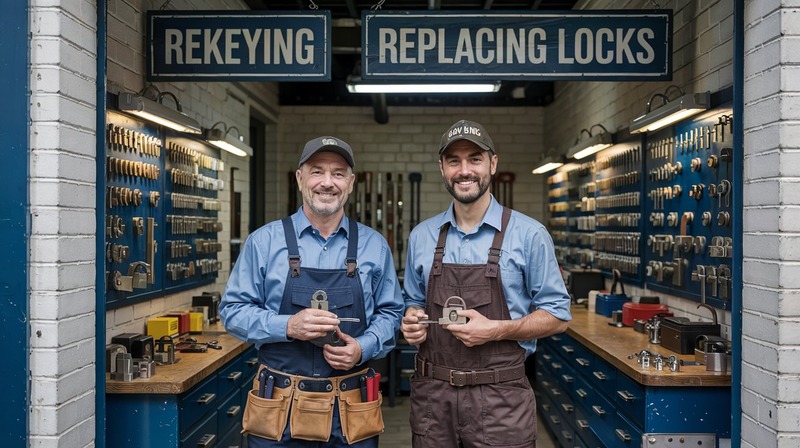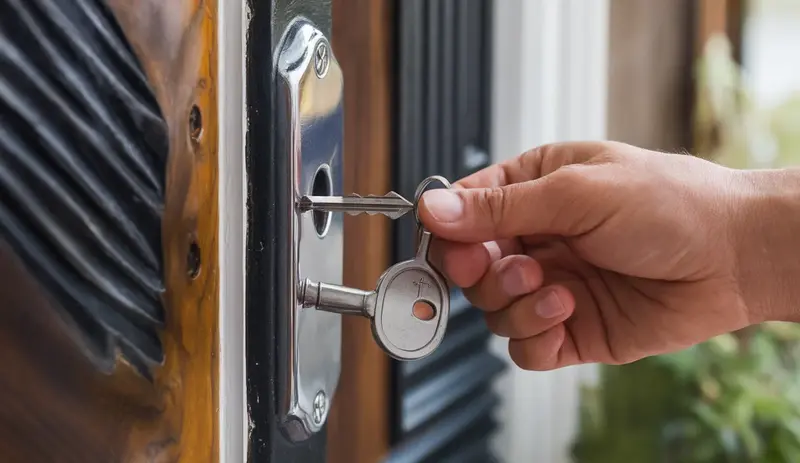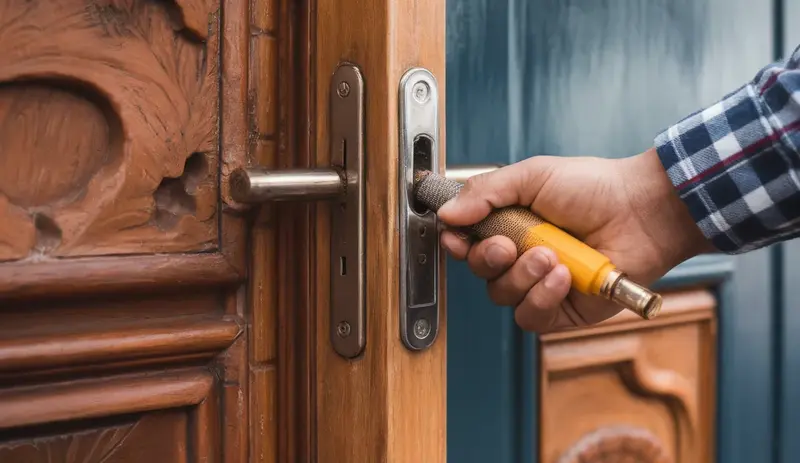
You’ve just moved into a new home, or maybe someone sketchy had a key to your place before you. Now you’re wondering – what’s the best way to make sure only YOU can get inside? Two options keep popping up: rekeying and replacing your locks. But what’s actually the difference, and which one should you choose?
Most people hear these terms and immediately get confused. Is rekeying just a fancy word for replacing? Are they basically the same thing? The truth is, they’re totally different – and knowing the difference could save you serious cash and headaches.
What Exactly is Rekeying a Lock?
Let’s discuss a security answer that not many folks are aware of. Picture that you’ve just purchased an existing house, and you’re uncertain about just how many keys to your home’s locks are still out there. That’s where a service called “rekeying” comes to the rescue. Think of rekeying like this: You’re giving your locks a new “password” that only your family and the folks at the rekeying service know.
But unlike with upgrading your locks, what rekeying actually does is change the internal mechanisms of your old locks so that only the new keys will work.
A master locksmith essentially reconfigures a lock’s internal mechanism. He or she rearranges the tiny, hair-like pins inside so that old keys become completely useless. It’s like telling your lock, “From now on, you only respond to me.” The beauty is that you keep the same lock hardware, but gain total peace of mind that no one else can waltz right in.
When Should You Rekey vs. Replace?
Most folks don’t realize that rekeying and replacing locks are two totally different situations. When you rekey a lock, it’s just like changing the password on your phone – the same lock is still there, but now it only responds to your unique key (or in the case of a smartphone, your unique way of unlocking it). Think of key replacement as getting a totally new phone. If the lock itself wasn’t changed, then you might have to change the way you think about what a lock can do. There’s different methods and tools that are used to pick a lock or hack a key, for instance.
When you need heightened security, but your lock is functioning properly, it’s time to rekey. Perhaps you’ve moved into a place where you’re not sure who might have key copies, or maybe you’ve been there long enough that you’re not comfortable with the idea of any previous occupant having a key. When the lock is truly broken and can’t be made to work like new, or when you want a lock that makes a fresh statement and works more in line with your style and the function of the door, it’s time to replace that lock.
Cost Comparison: Rekeying vs. Replacing
Let us discuss finances, because who does not adore conserving some cash? Unlike what we might assume, rekeying is a far more cost-effective alternative to replacing a lock entirely. It is also less time-consuming and, quite frankly, less of a headache. A typical service may charge you anywhere from $50 to $100; however, as the services advertises, it is a boon to both your and its bottom line.
You May Like: How Do Locksmiths Handle Locks On Sliding Glass Doors?
Warning Signs You Need to Do Something
What does this mean for you? Here are the crucial instances when rekeying is a good idea. It’s time to change your locks if you can’t remember who has a copy of your key. Also, consider these scenarios, any one of which might make you decide your current locks should be replaced:
- You moved to a new home (you never know who might have old keys).
- You lost track of who has key copies.
- You can see wear and tear on your current locks.
- You’re just wanting some extra peace of mind about your property’s security.
The bottom line? Don’t wait until something goes wrong. Proactively managing your locks can save you significant stress and potential security risks down the road. If you’re in the area, check out our location on Google Maps to get started with professional lock services.
Conclusion
Lock security doesn’t have to be complicated. Whether you choose to rekey or replace, the most important thing is taking action. Your home’s safety is worth a little time and investment.
Pro Tips for Homeowners:
- Always use a licensed, professional locksmith
- Check your locks’ condition annually
- Keep track of who has keys to your home
- Consider upgrading to smart locks for extra security
Not sure which option is right for you? Most locksmiths offer free consultations – give one a quick call and get personalized advice for your specific situation.


